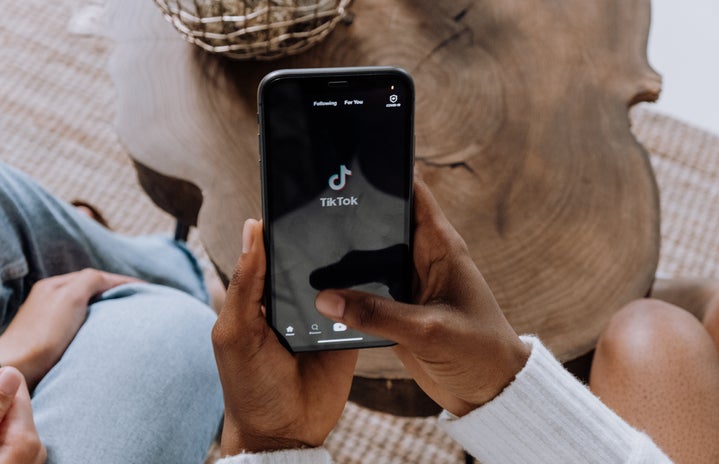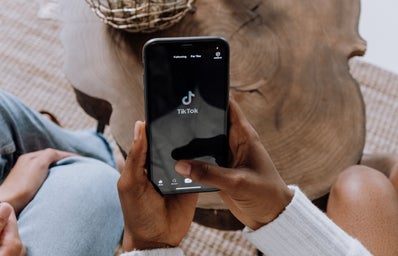Searching “relationship” in TikTok’s search tool brings up tons of different types of content, from comedic skits to mean-spirited pranks, date ideas, and more. Anyone who has experience with ‘RelationshipTok’ is no stranger to advice videos that discuss or show the users’ current or past relationships. Phrases like “if he wanted to, he would!” have become very popular in this genre of content to show what someone’s partner did for them and insinuate that if your partner doesn’t do the same, they are being complacent in your relationship.
For those new to dating or in a relationship they are unsure of, sometimes these videos clarify what they should be looking for in a healthy relationship. But for some, these videos just become a new outlet for insecurity.
The benefits of online advice
Not everyone has people with experience in healthy, long-term, or romantic relationships and, therefore, do not have an in-person support system to reference when they need advice. For people in this situation, social media like TikTok can provide deeply important insights that they wouldn’t have been able to access otherwise. This utility also applies to those who may not feel comfortable opening up to anyone about the things within their relationship that are bothering them but still want to feel seen.
TikTok’s popularity has led many professionals from different careers or educations to share their knowledge with the Internet, which is also a valuable source, especially for those who may not have access to mental health services or relationship therapy.
it’s not all positive, though
From self-proclaimed experts to those who consistently identify everyone in their life as “the problem”, ‘RelationshipTok’ is full of people whose content can potentially damage their audiences. Relationships, romantic or not, are never black-and-white, which is why content that acts as though they are is dangerous. “This or nothing!” is a terribly unrealistic way to view relationships, but TikTok users like @respectfullygabby seem to disagree.
Wait… who are you again?
Another element to all of this is that it is important to remember who’s speaking to you and how their identities and goals impact their messaging. The video above is a perfect example of this. If a man went onto TikTok and told his audience the opposite of what Gabby said, he would be labeled (rightfully so) as misogynistic and toxic. The comments on this video are split on this take, with women saying that they agree and others saying things should be equal for success. These comments are a great reminder that opinions are often formed by experience. If you had a horrible relationship where they loved you an overwhelming amount more than you loved them, you would likely disagree with this statement.
Just because someone slaps the title “dating coach” next to their name and links you to their *paid* courses and asks for $25 if you want advice from them, (seriously, don’t give these people your money), doesn’t mean they have anything valuable to share with you. Unless their credentials are provable, like a degree or certification, do not fall into the trap they lure you into. Just like “alpha males” put women down to manipulate men into paying for their seduction and dominance classes, unprofessional coaches and counselors are all ultimately aiming for your money, not your well-being.
Remember that this is a very specific example focusing on one creator’s business model. This does not automatically mean that all of her advice isn’t beneficial, but it is important to remain aware of biases in the people who are trying to sell you things.
Being toxic for laughs
User @Taniatotanesmartinez uses trap questions for laughs, like in the video below. Asking ridiculous questions while seeking one specific answer is something most people can recognize as a recipe for disaster, but this trend isn’t new or unique to Tania.
Her videos are funny and can even start interesting conversations. Still, those who take this satirical content a little too seriously will likely end up hurting their own feelings, and they might also harm the dynamic within their relationship.
Conclusion
The lesson that ideally will be taken away from this piece is to be mindful of the content you consume daily, not only concerning romantic relationships. Being media literate in an era where escaping media is impossible is so extremely essential to keeping yourself grounded and sometimes sane. Consuming the content talked about in this article isn’t something to feel guilty about or stop doing, but it is vital that you don’t let yourself get caught up in what you’re hearing and take it as absolute fact. Every relationship is different, meaning that some content will and won’t resonate with you. Only you and your partner know the ins and outs of your relationship, so do your best not to let others dictate how you should or shouldn’t feel.


